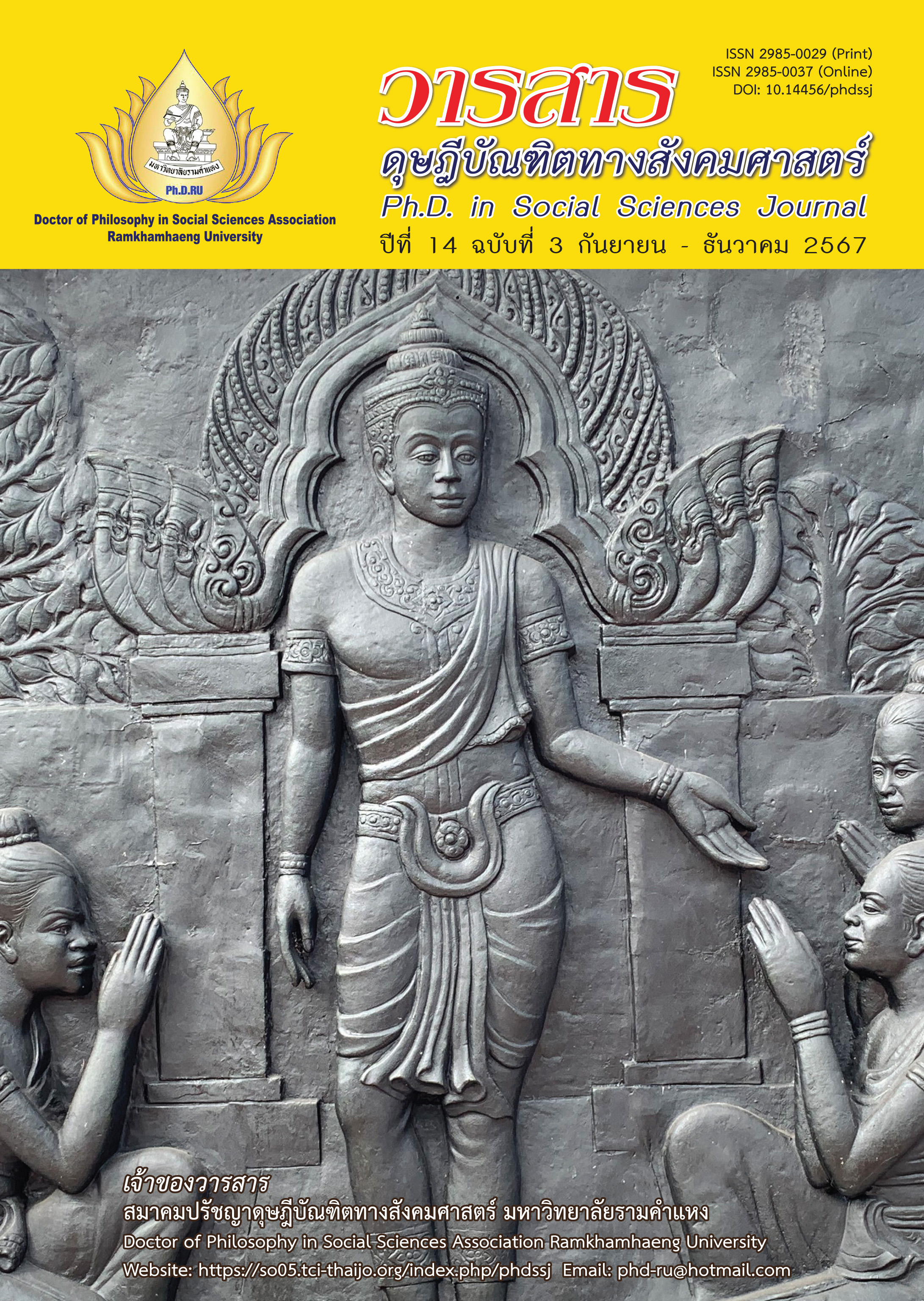The Rule of Law and the Use of Judicial Powers of the Constitutional Court Regarding Gender-Neutral Family Rights
Main Article Content
Abstract
This academic article aims to analyze the application of the rule of law in accordance with the Thai Constitutional Court’s decision to protect people’s constitutional rights in cases related to gender family rights. By applying the rule of law principles for protecting family rights according to constitutional principles including laws related to the protection of gender-based family rights and the Constitutional Court’s decision regarding family rights
Findings are as follows: The Constitutional Court is the organization that enforces the Constitution to protect citizens’ constitutional rights in accordance with the rule of law. It has an important role to play as a last resort and it is necessary to protect gender rights in marriage. To create a system to protect gender rights and freedom of marriage. Adopting the rule of law by applying the principle of proportionality and equality before the law to be used in the decision of the Constitutional Court regarding the right to marry according to gender. Make the Constitutional Court a body that protects the values of the Constitution and responds to expectations in creating gender-based marriage laws.
Article Details

This work is licensed under a Creative Commons Attribution-NonCommercial-NoDerivatives 4.0 International License.
Academic articles, research articles, and book reviews in the Ph.D. in Social Sciences Journal are author’s opinions, and not the publisher’s, and is not the responsibility of the Ph.D. in Social Sciences Journal Philosophy Association, Ramkhamhaeng University. (In the case that research is done on human, the researcher has to be trained in Ethics for Doing Research on Human Training and has to produce the evidence of the training).
References
Chambers, D. L., & Polikoff, N. D. (1999). Family law and Gay lesbian family issues in the twentieth century. Family Law Quarterly, 33(3), 523-542.
Constitution Drafting Committee. (2019). Objectives and explanations of each section of the Constitution of the Kingdom of Thailand B.E. 2560 (2017). The Secretariat of the Senate. [In Thai]
Komutee, P. (2020). Right and liberties in marriage of alternative suxual people. Graduate Law Journal, 13(4), 501-522. [In Thai]
Kraivichian, T. (2010). The Rule of law. Chuanpim 50. [In Thai]
Office of the Constitutional Court. (2022). Collection of Constitutional Court decisions for the year 2021 (Volume 4). Author. [In Thai]
Singkaneti, B. (2022). Important issues that should be addressed and resolved according to the Constitution of the Kingdom of Thailand B.E. 2560 (2017): The rule of law. King Prajadhipok’s Institute. [In Thai]
Thongnun, C. (2022). Voting rights or election duties: Constitution of the Kingdom of Thailand. Journal of Social Science and Buddhistic Anthropology, 7(1), 341-356. [In Thai]


